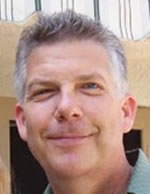On a recent case opposing counsel hired a forensic photographer. The case involved an accident at night in which visibility was a key factor. The role of the forensic photographer in a case like this is to photograph the area to visually show what a person could see in such an environment. This may involve checking weather conditions, visibility conditions, lighting conditions, and getting information about the exact location of the incident, etc. Of course, it also involves a thorough understanding of how to accurately reproduce the scene photographically.
In this case, the opposing "expert" photographed the wrong area and used the wrong equipment. In his deposition, he was asked about the lighting, and his response included, "Again, this is out of my kind of area. I'm there to push the button."
He was asked later in the deposition about his role as a forensic photographer, to which he stated, "...I think of it as kind of a movie set. Okay. We have a producer...director...and a cameraman, me." This photographer obviously doesn't think of himself as an expert, but as just the person to, "...push the button."
When I visited the same scene, I checked the weather conditions, moon phase and position, and lighting conditions. I referred to photographs taken the night of the accident and the following day for orientation. And, I read depositions of witnesses. I used the proper equipment, took light readings, and made thorough notes about my observations. When I made prints, I used a calibrated monitor and printer, and valid methods for reproducing the proper tonal values in the prints. I was able to explain when I was deposed how I knew what to photograph, when to photograph the area, what equipment was proper to use, and how I know that my prints represented the scene as it was the night I took the photographs.
Next time you need a forensic photographer, be sure to get an expert, rather than the "cameraman" who is just there to "push the button."











